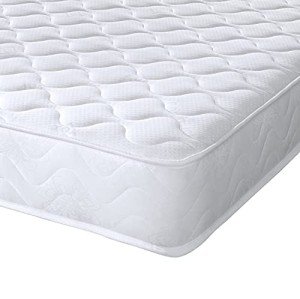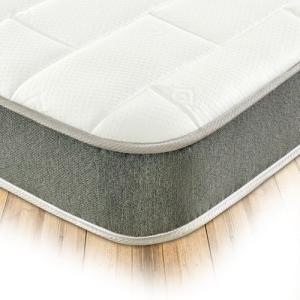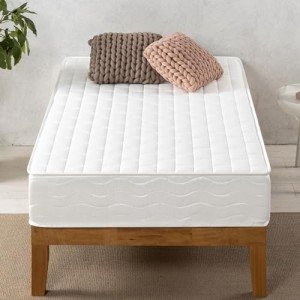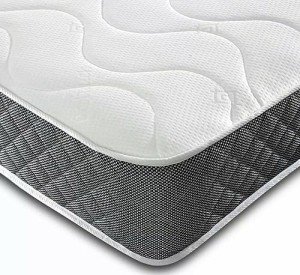Bunk beds are a popular choice for families, especially when space is at a premium. With their ability to accommodate multiple sleepers in a compact footprint, they are a staple in children's rooms, guest rooms, and even in some adults' living spaces. One crucial aspect to consider when investing in a bunk bed is the mattress. The choice often comes down to two primary types: memory foam and coil spring mattresses. Each has its advantages and disadvantages, making it important to understand your options before making a decision.
Memory Foam Mattresses
Advantages
-
Comfort and Support: Memory foam mattresses are well-known for their contouring properties, which provide excellent support and pressure relief. When weight is applied, the foam softens and conforms to the sleeper’s body, helping to distribute weight evenly. This feature is particularly beneficial for growing children who require proper spinal alignment.
-
Motion Isolation: One of the standout features of memory foam is its ability to absorb movement. If one person shifts or gets up during the night, the other person is less likely to be disturbed, making it an excellent choice for bunk beds where sleepers may be close together.
-
Durability: While the initial investment for memory foam can be higher, these mattresses often last longer than traditional spring mattresses if cared for properly. They are less prone to sagging over time and can maintain their shape for several years.
-
Suitable for Allergies: Many memory foam mattresses are made from hypoallergenic materials and resist dust mites, mold, and other allergens. This characteristic can contribute to a healthier sleep environment, especially important in a shared space.
Disadvantages
-
Heat Retention: A common complaint among memory foam users is that these mattresses can trap heat, resulting in an uncomfortable sleeping experience. However, many modern memory foam mattresses are designed with cooling technologies, such as gel-infused foam or open-cell structures, aimed at mitigating this issue.
-
Weight: Memory foam mattresses tend to be heavier than coil spring options. This can make maneuvering the mattress for cleaning or changing linens a bit more challenging, especially in bunk bed configurations.
-
Cost: Generally, memory foam mattresses can be more expensive than basic coil spring mattresses. However, the investment may be justified due to their longevity and comfort.
Coil Spring Mattresses
Advantages
-
Breathability: Coil spring mattresses are constructed with a network of springs that allows for better airflow. This can help regulate temperature, making for a cooler sleeping environment—an important feature, especially in compact spaces like bunk beds.
-
Variety of Options: Coil spring mattresses come in a variety of designs, including innerspring and pocket coil systems. These options allow for a range of firmness levels, catering to individual sleep preferences.
-
Affordability: Typically, coil spring mattresses are less expensive compared to memory foam counterparts, making them an attractive option for budget-conscious shoppers.
-
Lightweight: Generally, coil spring mattresses are lighter than memory foam, making them easier to handle during setup, cleaning, or mattress rotation.
Disadvantages
-
Motion Transfer: Unlike memory foam, coil spring mattresses don’t isolate motion well. If one sleeper moves, it could wake another sleeper, which can be a concern in a bunk bed scenario.
-
Durability: While many coil spring mattresses are durable, they can be more prone to sagging or developing "body impressions" over time, especially if lower-quality materials are used. Regular flipping or rotating can help mitigate this issue but may not be practical for all bunk beds.
-
Less Pressure Relief: Coil spring mattresses may not offer the same level of pressure relief as memory foam. Individuals who sleep on their sides or have specific orthopedic needs may not receive the necessary support from coil mattresses.
Conclusion: Which is Right for You?
Choosing between a memory foam and coil spring mattress for a bunk bed ultimately depends on your specific needs, budget, and preferences. If you prioritize comfort, support, and motion isolation, a memory foam mattress is likely the best choice. However, if you are looking for a more affordable option with better breathability and easier handling, a coil spring mattress may be the way to go.
Always consider factors such as age, weight, sleeping position, and any specific health concerns when selecting the ideal mattress. Investing in the right mattress will not only enhance sleeping comfort, but it can also contribute to healthier sleep patterns for you and your family. Ultimately, testing different mattresses whenever possible is a great practice to ensure that you find the perfect match for your bunk bed.






